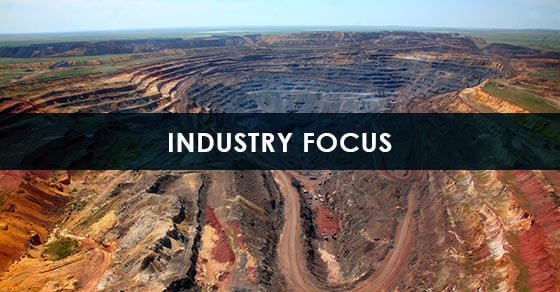As the coronavirus continues to decimate economies, the pandemic has thrust several issues into the spotlight, not the least of which is the need for more reliable mineral supply chains the world over.
The need for more stable mineral supplies was a top-of-mind issue before the virus, as advancing technologies and developing economies have been calling for more minerals than ever before, but the coronavirus has brought the realities of supply chain weaknesses to life.
The resulting shock has caused many in the industry to call for change, the International Energy Agency (IEA) among them; the IEA released a commentary highlighting the impact the virus has had already and the importance of reliable mineral supply chains in advancing clean energy initiatives.
Minerals Crucial to Advancing the Energy Transition
While minerals are already essential in the energy matrix, they play an even more crucial role in implementing clean energy technologies. From solar panels and wind turbines, to lithium-ion batteries for electric vehicles and energy storage, clean energy technologies rely on key minerals much more heavily than their fossil-fueled counterparts, presenting a risk to global progress if supplies are subject to volatility. Some of the most important minerals in advanced energy technologies (batteries included) include:
As coronavirus took hold, many mines were forced to shut down or slow production, suspending supplies and illustrating just how easy it is to cut countries off from critical goods and materials.
Peru, the world’s second-largest copper producer, was hit hard by the virus, bringing output to a trickle as mines shut down or reduced output in response to the pandemic. Similarly, 75% of platinum supply was initially cut off as South Africa went on lockdown.
S&P Global Market Intelligence has been tracking the situation and at the time of reporting, had documented 247 mine site disruptions in 33 countries. Gold has also been significantly impacted by the virus, according to Investing News Network, with the impact on exploration being called into question.
Nickel supplies were already unsettled after Indonesia, the world’s largest nickel producer, banned exports in late 2019. And China-concentrated supplies of lithium have raised concerns as the world races to advance battery technologies for widespread electrification.
Moving Forward
Impacts on markets could be long-lasting, according to the IEA, as companies put projects on hold or cut budgets in response to the pandemic and the financial fallout. And while coronavirus affected the world on a scale not seen in modern times, the weaknesses it has highlighted make it easy to see how unstable existing supply chains are.
The IEA recommends a number of paths governments and companies can take going forward in order to help ensure more secure mineral supplies:
- Periodic evaluation of supply and demand sources, in order to identify and address potential weaknesses
- Investments in new mines, particularly in markets where supply shortages are likely (this will likely require legislative support around clean energy)
- Development of improved recycling and end-of-life managements strategies, as well as exploration of increased material efficiency and the potential for material substitutions
The last point echoes a Call to Action from a US Department of Commerce report emphasizing the need for increased mineral research and development.
Conclusion
Only time will tell the full extent to which the Covid-19 pandemic will truly influence mineral supply chains, but the virus’ effects have already demonstrated the need to strengthen and diversify them around the globe.
FEECO has been serving both domestic and international mining operations through process development, custom production equipment, and parts and service support since 1951. We continue to maintain our commitment to advancing technology in efficient mineral processing, metal recovery, and innovative approaches to mineral applications. For more information on our mining and mineral processing capabilities, contact us today!


